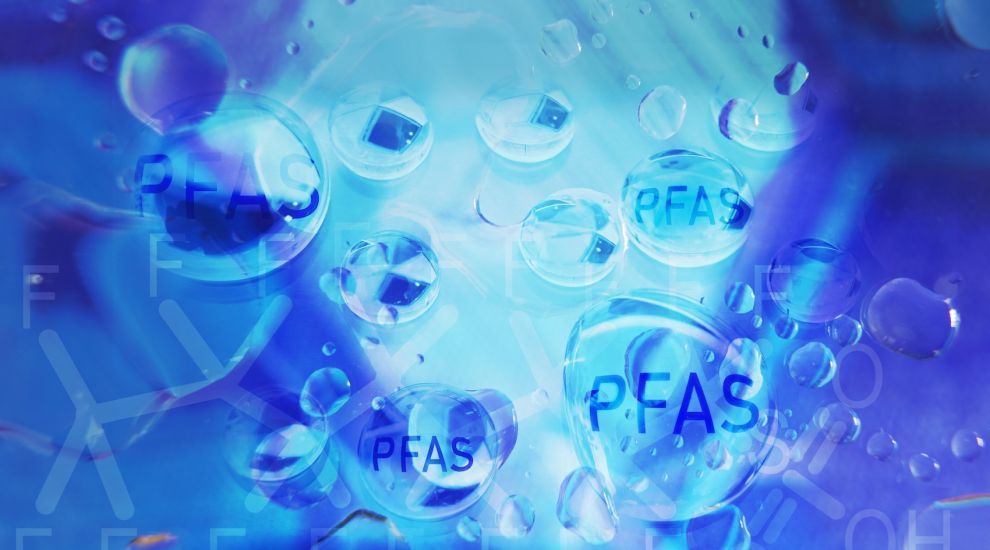


Hundreds of islanders are urging the Government to invest in a water treatment plant to remove all traces of PFAS in Jersey's water supply, as scientific evidence continues to develop around potential health impacts of the chemicals.
Signed by more than 300 islanders since its launch just weeks ago, Paul Le Claire's petition calls on the Government to adopt global best practices for regulating PFAS and set up healthcare services for testing and treatment.
Jersey Water maintains its drinking water is fully compliant with current regulations and that it already carries out regular testing, with 16,656 tests conducted in 2024 alone, and has said it will work to remain fully compliant should regulations change in future.
In his petition, Mr Le Claire points to a multi-million dollar treatment plant in the north of Australia as a potential model solution for keeping Jersey's PFAS levels in check in future. The facility in Katherine can treat up to 10 million litres of water per day and was designed to remove PFAS from groundwater.
"International models, like Australia’s $30M treatment plant in Katherine, provide effective solutions to mitigate contamination," his petition reads.
"This would safeguard public health, our food chain, and our environment.”
PFAS (perfluoroalkyl and polyfluoroalkyl substances) are a group of man-made chemicals, often referred to as 'forever chemicals' due to how they resist breaking down in the environment and bodies.
They have been linked to health issues including elevated cholesterol, kidney and testicular cancers, and potential reproductive and endocrine disorders.
The chemicals can be found in higher concentrations in some parts of the island, but mains drinking water only contains trace amounts.
A report recently published by Jersey Water said that 99.95% of water samples across the island meet regulatory standards.
The principal source of contamination in Jersey was firefighting foam sprayed at the Airport, which entered the water course and permeated down into St Ouen's Bay and the Pont Marquet valley, which runs from the Airport to St Aubin's Harbour.
In response to the concerns of islanders, the Government funded a blood-testing programme in 2022, which showed that half of those tested had high levels in their bodies – a finding described as "truly shocking" by campaigner Sarah Simon, who lives in an affected area of St Ouen.

Pictured: Sarah Simon believes her own health has been impacted by drinking water contaminated by PFAS.
An independent 'Scientific Advisory Panel' of experts was also established to make recommendations on what Ministers should do.
Scientific research has increasingly linked PFAS exposure to health risks, including elevated cholesterol and certain cancers.
A recent report from Jersey’s Scientific Advisory Panel concluded there is a "consistent association" between PFAS exposure and elevated cholesterol, as well as evidence suggesting increased risks of kidney and testicular cancers.
The panel noted that evidence of other health impacts, such as bladder cancer and endocrine disorders, remains less clear.
On reproductive health, the panel concluded: "Overall, the panel was not persuaded that PFAS exposure has been demonstrated to have impacts on most reproductive health outcomes, except for some evidence pointing to challenges with breastfeeding."
The panel of experts emphasised that people should continue breastfeeding, as "the considerable benefits are likely to outweigh any potential risks."
The Government has accepted several recommendations from the Scientific Advisory Panel, and is considering implementing a "therapeutic phlebotomy" – or blood-letting – for residents with high levels of PFAS in their blood.
The panel's other recommendations included that PFAS-exposed islanders found to have elevated cholesterol in their blood should have it managed in the usual way, through diet and statins etc.
It also recommended that when PFAS-exposed people exhibit symptoms which are consistent with kidney cancer, testicular cancer or bladder cancer, clinicians should have a "higher level of suspicion of cancer than in unexposed populations".
With growing global recognition of the potential health impacts of PFAS exposure, international standards are due to change, with EU and UK regulations tightening in 2030.
Jersey Water CEO Helier Smith told Express earlier this year: "Once those UK regulations come into place, it's always going to be our intention to be fully compliant."
The company has also conducted promising trials of treatment technologies, with one called SAFF being trialled back in 2022.
'Surface Active Foam Fractionation' is a filtration system which separates the PFAS from the water using small air bubbles. The chemical is removed in a concentrate that can then be disposed of safely.
Mr Smith said the trial of submerged aerated fixed films had been "widely successful", though Jersey Water clarified that this was a small-scale laboratory test and that they had not yet made a decision on which treatments to use.
Jersey Water's Head of Water Quality, Jeanette Sheldon, has also said the results of recent water quality tests revealed island drinking water "remains among the best in the world" in the company's annual water quality report.
She said that the company has increased independent testing for PFAS by 75% in recent years.
"These tests evidenced that we continue to remain fully compliant with the regulatory requirements for PFAS in drinking water set by the European Union (EU) and the UK’s Drinking Water Inspectorate (DWI). In fact, we are 68% lower than the maximum permissible standard."
Key meeting after expert papers link PFAS exposure to cancer and cholesterol risk
Doctor appointed Gov's lead adviser on toxic chemical in water supply
Gov identify experts to recommend action on toxic chemical in water
Comments
Comments on this story express the views of the commentator only, not Bailiwick Publishing. We are unable to guarantee the accuracy of any of those comments.